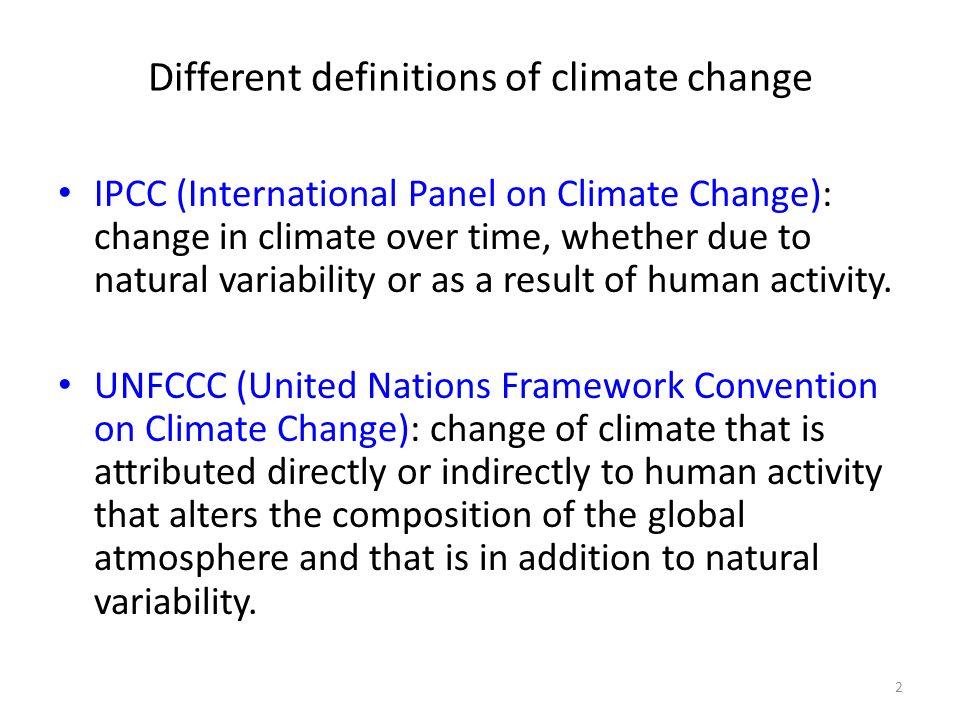
A NASA climate change newsletter isn't the first place you'd turn to for climate news. However, the government agency provides a wide range of resources to keep you informed of the most recent information. The weekly "Climate News Newsletter" is one of its offerings. It summarizes and breaks down the vast amount of Earth science content produced by the agency. You can use this resource to track the latest developments of climate science and keep an eye on NASA's work for a better world.
It also publishes a monthly newsletter that includes photographs taken by astronauts at the International Space Station. These might not be the most impressive shots in the world, but the quality of this material is commendable. The newsletter has a lot more than just the photos. It also contains some information about NASA’s upcoming manned space program. This program aims at sending humans into low Earth orbits and back in record times.
NASA's Earth Observatory (EOS) is an invaluable source of information for scientists, students and anyone interested in the planet. The site's newsletters, e-mails and website are chock full of climate and other Earth science data, information and other goodies. It is easy to see why NASA is a favourite among scientists. NASA also has the resources to hire the best and brightest. NASA is available to assist communities affected by natural hazards like hurricanes, tornadoes or earthquakes. As such, its mission is to promote a safe and resilient world that is sustainable.

You will also find an active social presence and an e mail service for news and announcements. The organization's greatest achievement might be the Earth science newsletter. It provides information and digestible news about Earth science technology and research. It has around 50 staff members, which makes it a great resource for some of the world's most prominent scientists. EOS's blog is a great place to interact with scientists as well Earth watchers. If you are a fan NASA's space program, be sure to check out their newsletters, email, and website for the most recent news and research. Subscribe now! NASA hopes that this will enable it to continue its work to protect our planet for future generations.
FAQ
How will climate change impact the world's oceans?
What is the impact of climate change on the world's oceans and marine life?
Since its inception, climate changes have had significant impacts on the oceans of the world and the marine life that surrounds them. The loss of the ozone coating and constant oceanic temperature increase causes significant disruptions in marine ecosystems.
Climate change may also be responsible for extreme sea level rises and more unpredictable weather conditions, which can prove to be fatal to coastal areas. Temperature changes can also cause water levels to drop, causing "dead zones", areas where there is less marine life.
Climate change is also contributing to ocean acidification, caused by excess carbon dioxide released into the atmosphere that accumulates within the oceans. Ocean acidification increases pH, which can disrupt the essential functions of animals that are unable to adapt, such as crabs, oysters, clams and crabs.
The effects of higher temperatures on natural habitats can be altered by shifting their geographical locations or shrinking them all together. This could lead to certain species becoming uninhabitable. Ocean stress increases already high extinction rates worldwide, creating a severe imbalance of predators and prey which might lead eventually to complete extinction.
The effects of climate change ripple throughout entire ecosystems influencing multiple species whether directly or indirectly through evaporation lowering water volumes or sharp temperature shifts jeopardizing any sustainable development for fisheries and other maritime activities. Overall climate change continues one by one wiping out entire species from our planet transforming future lives on land but most importantly deep below the surface of our oceans.
What is the impact of climate change on biodiversity and ecosystems?
Climate change can have a variety of impacts on biodiversity, ecosystems, and the environment. Climate change is affecting ecosystems and wildlife today.
These changes can result in shifts of habitat areas, disrupting food chains or affecting population numbers or distributions. With potentially devastating consequences for biodiversity, ecosystems and their functioning, these shifts in climate conditions could cause significant impacts. Changes in the hydrological cycle can also affect water availability for aquatic species.
Climate change also causes rising temperatures, more frequent extremes like droughts and flooding. This puts additional stress on fragile systems like coral reefs and tropical rainforests. The climate change will lead to the extermination or decline of as many as 30% of animal species in 2050. This could cause further destruction of ecological communities.
Climate change poses a significant threat to biodiversity and human societies, as well as to ecosystems that provide food, water, timber, or other services. You can mitigate the effects of climate change at all levels by reducing global warming trends. Further, future damages can be prevented with good management practices.
What are the possibilities for new technologies to combat climate change?
This global problem is a huge challenge that new technologies can address. From renewable energy sources like solar, wind, and geothermal to energy storage systems like battery packs or thermal tanks, advances in applied science are making it possible for us to transition to a more sustainable future.
Carbon capture and sequestration are two methods that can be used to lower greenhouse gas levels. Enhanced agricultural practices can reduce livestock emissions and soil degradation. Smart grid technology is also possible to be integrated into existing power infrastructure, resulting in an efficiency boost. Furthermore, improved building design can help decrease energy consumption.
Researchers can also use cutting-edge synthetic biology to develop organisms that can convert green fuels like CO2 laser into biofuels and other feedstocks. This could change the way that transportation is done if petrol-based vehicles are replaced by zero emission electric cars that are powered from clean sources.
Finally, greater investment in digital technology and AI can help empower people across borders with greater access to data on their ecological footprint and ultimately lead to more informed choices regarding consumption habits. Ultimately, understanding our role in carbon production is paramount allowing us all to be better stewards of our planet.
What is the current climate like? How is it changing?
The current climate is characterized by unprecedented uncertainty and change. Unprecedented atmospheric levels of carbon dioxide are leading to significant temperature increases, including droughts, heat waves and changing rainfall patterns. They also cause ocean acidification, rising sea levels, and melting polarice caps.
These changes already have a profound effect on ecosystems all over the globe, causing habitat destruction and extinctions. They also threaten the livelihoods and lives of billions, especially in areas that are already suffering from resource scarcity and poverty.
Due to the higher average surface temperatures due to human activity, extreme weather events like hurricanes, cyclones and wildfires have been steadily increasing over time. As temperatures rise, this trend will likely continue.
Global climate change is causing many problems. These include rising food insecurity, displacement due to extreme weather events and sea level rise that force communities to move. Climate change is also causing social inequalities, bydisproportionately affecting marginalized groups that lack the knowledge or resources to adapt effectively.
Although there have been some progress in efforts to reduce carbon emissions and renewable energy initiatives in certain countries, it is still not clear that meaningful global action is required to mitigate these changes. In order for us to prevent further disruption and devastation from climate change all nations must come together and take urgent action now while at the same time planning for adaptation in an increasingly uncertain world.
What role do greenhouse gases play in climate change?
Greenhouse gases are a key factor in climate change. They act like an invisible blanket surrounding the Earth, trapping the infrared radiation that warms it and keeping it from getting too hot. Without them, the planet might be much colder that it is now.
Greenhouse gases are generated through human activity, such as burning fossil fuels or other industries that produce emissions. As these activities continue to increase, more heat gets trapped in the atmosphere, leading to rising temperatures and extreme weather events.
The most abundant greenhouse gas is carbon dioxide (CO2), which is released when burning fossil fuels such as coal, oil, and gas. Important contributors are also methane and nitrousoxide (N2O), as well fluorinated gases (Fgases).
Due to human activities, the concentration of greenhouse gasses has increased dramatically since preindustrial time. Global warming has caused an increase in temperature all around the globe, and in our oceans. It is also causing major changes such as stronger storms and more droughts, melting of glaciers, rising sea levels, and increased flooding.
To reduce further damage caused by climate change, human beings need to decrease their greenhouse gas emissions. We can do this by shifting away from fossil fuels in favor of renewable energy sources like solar and wind power. Reforestation and other agricultural practices can be used to absorb more CO2 from air. These activities will reduce atmospheric greenhouse gas concentrations and create a healthier environment that supports all life.
Statistics
- Fossil fuel production must decline by roughly 6 percent per year between 2020 and 2030. (un.org)
- The 10 countries with the largest emissions contribute 68 percent. (un.org)
- features Earth's average surface temperature in 2022 tied with 2015 as the fifth warmest on record, according to an analysis by NASA. (climate.nasa.gov)
- Indigenous peoples and local communities receive less than 1% of all climate funding despite scoring wins for people and nature Africa's broken food markets must be fixed to tackle hunger (climatechangenews.com)
- According to the 2014 report on Climate Change Impacts, Adaptation, and Vulnerability (page 8) from the United Nations Intergovernmental Panel on Climate Change, governments at various levels are also getting better at adaptation. (climate.nasa.gov)
External Links
How To
How to Reduce Carbon Footprint, Fight Climate Change
There are many things you can do to help reduce your carbon footprint, and fight climate change. You can reduce the amount of energy you use in your home by installing energy-efficient lighting and insulation. You can also reduce energy consumption by turning down your thermostat during winter and summer, unplugging electronics, using public transportation, walking instead of driving, and switching off lights when they are not in use.
Second, ensure you recycle all materials and compost food scraps. They won't end up in landfills that release methane gas to the atmosphere. For shade and natural cooling, consider planting trees around your home. Trees absorb carbon dioxide from the atmosphere. The last thing you should do is to look for products that have minimal packaging and sustainable labels, such organic cotton or FSC certified wood. This means the product has been sustainably managed over time in order to maintain forest health.
Not only can you reduce your personal emissions but you can also support organizations like The Nature Conservancy Canada, Climate Change Solutions and Emissions Reduction Alberta.
Making small changes in our daily lives can help us all fight climate change together.